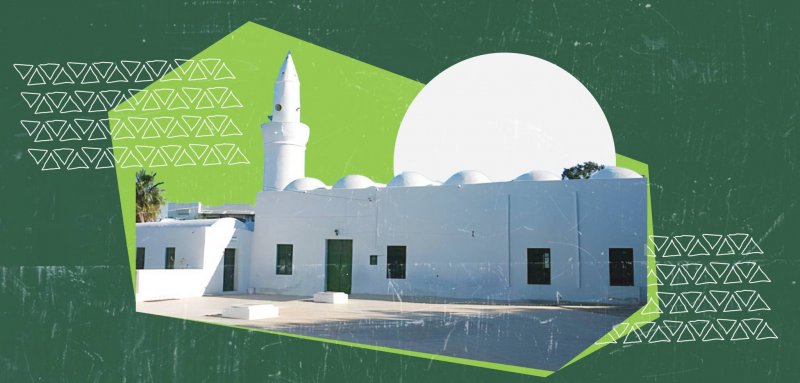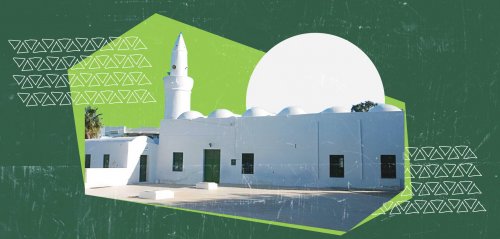I saw it for the first time on the big screen, akin to those far-off places that cinema movies transport us to, making us feel intimately familiar with its streets and people. We know it by the name "The Island of Forgiveness", the title that director Ridha Behi bestowed upon his latest cinematic work, which delves into Tunisia's pivotal 1950s era. The film opens with a captivating view of its waters overlooking the Gulf of Gabes before transitioning to the mainland adorned with buildings predominantly painted in white and blue, while its pathways reflect a colored tapestry of diverse and intermingling cultures.
Behi tells a story that unravels from the recollections of an aging writer who decides to return to Djerba, the place where his eyes first beheld the world. He returns to scatter his mother's ashes and explore the history of his Italian Christian family, deeply rooted in the Tunisian land. Through his eyes, we witness snapshots of his childhood, capturing a time when the three monotheistic religions – Christianity, Judaism, and Islam – coexisted harmoniously, erasing barriers between the island's native inhabitants and the foreign communities residing within its shores. They all came together to face life's hardships and coexist despite their many differences. Though the general atmosphere was not ideal due to French colonization and extremist currents, Djerba's ability to tolerate and accept others remained intact.
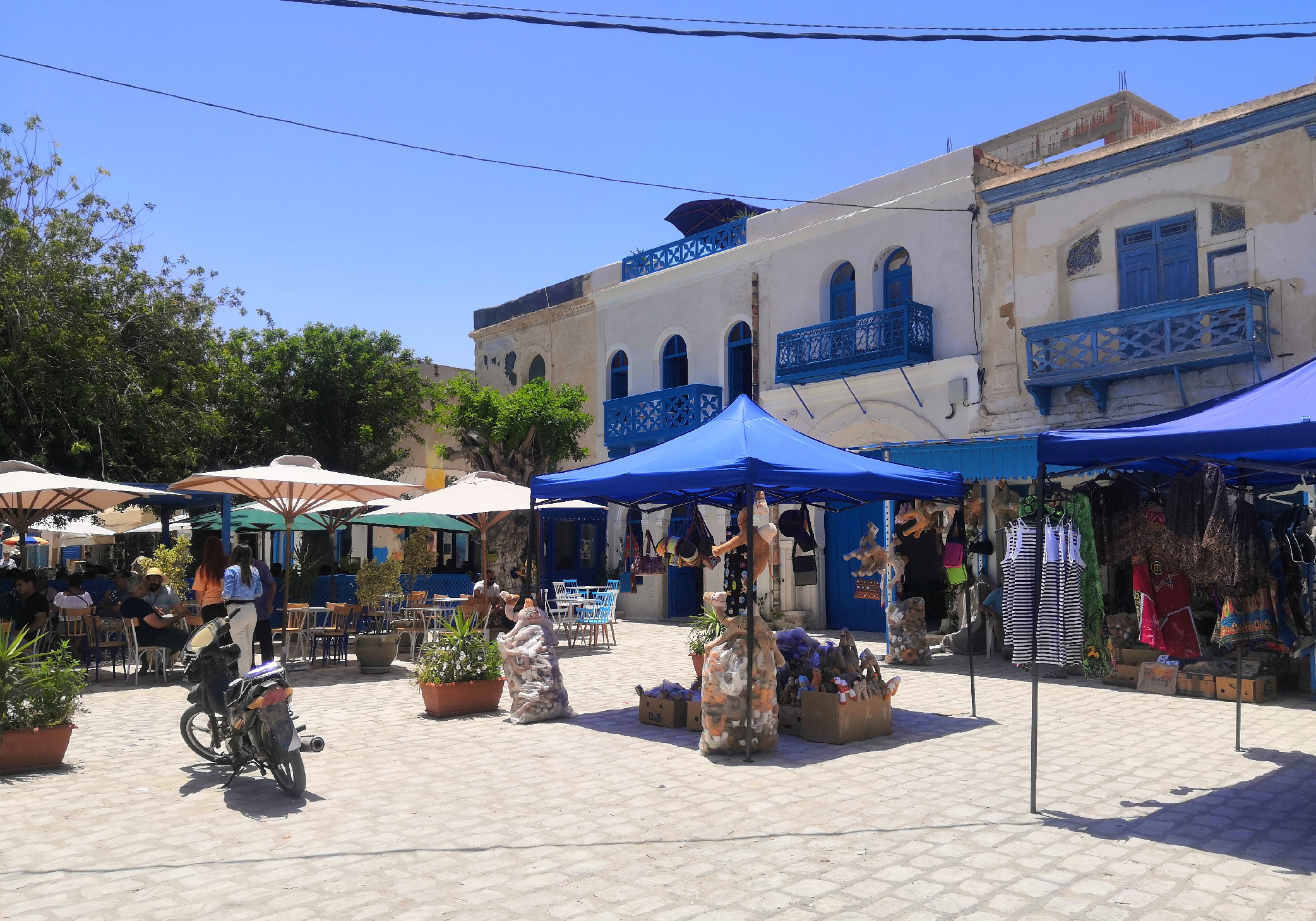 Souk in Djerba island in Tunisia, the Island of Forgiveness, the Island of Dreams
Souk in Djerba island in Tunisia, the Island of Forgiveness, the Island of Dreams
The director skillfully travels to the past, weaving it into the present, highlighting the relevance of Djerba's story in the face of retrogressive and fanatical ideologies plaguing our Arab societies today. However, the Djerba depicted in the film is not much different from the reality I experienced during my visit – a place that retains its exceptional beauty despite undergoing various transformations over time.
Despite the challenging backdrop of past French colonization and extremist ideologies, Djerba remained a bastion of tolerance and acceptance.
Djerba, a crossroads of civilizations
As I ventured into the heart of "Houmt Souk", the capital of the island and its bustling commercial hub, and wandered through its streets, I was captivated by the diverse faces and features that melded Arab, African, and European traits. The vibrant streets were lined with traders offering an array of renowned textiles, exquisite jewelry, fine leather goods, alongside enticing dried fruits and aromatic spices. Here, various styles of clothing coexist, with some holding on to traditional garments like "biskari" and "jbab", while the majority embraces contemporary fashion trends. It's as if entire worlds converge harmoniously on this small corner of earth.
I saw diverse features that melded Arab, African and European traits, and vibrant streets lined with shops and various clothing styles, from the modern to the traditional "biskari". It's as if entire worlds converge harmoniously in this small corner of earth
The Amazigh tribes that settled in North Africa, were the first to settle on this island, peacefully spreading their culture and customs. Djerba, spanning 514 square kilometers, has always been captivating and beautiful, drawing both real-life explorers and those seeking mythical tales. It is believed to be the island discovered by the leader "Odysseus" in the epic "The Odyssey", when he ventured the seas and became lost after deceiving the people of Troy with his wooden horse concealing soldiers within.
Odysseus heard its alluring call from afar, yet he hesitated to descend upon its palm-shaded shores. Instead, he sent two sailors to explore the place, and the island's inhabitants warmly welcomed them, offering heartfelt hospitality. However, after tasting the fruit of the "lotus" tree, a type of date, the sailors became captivated, forgetting their mission and the waiting ship, preferring to remain in the caves known as "The Caves of Oblivion". Odysseus decided to search for them and was able to find them with the islanders' kind assistance. He then departed along with his sailors, who shed tears as they left the island.
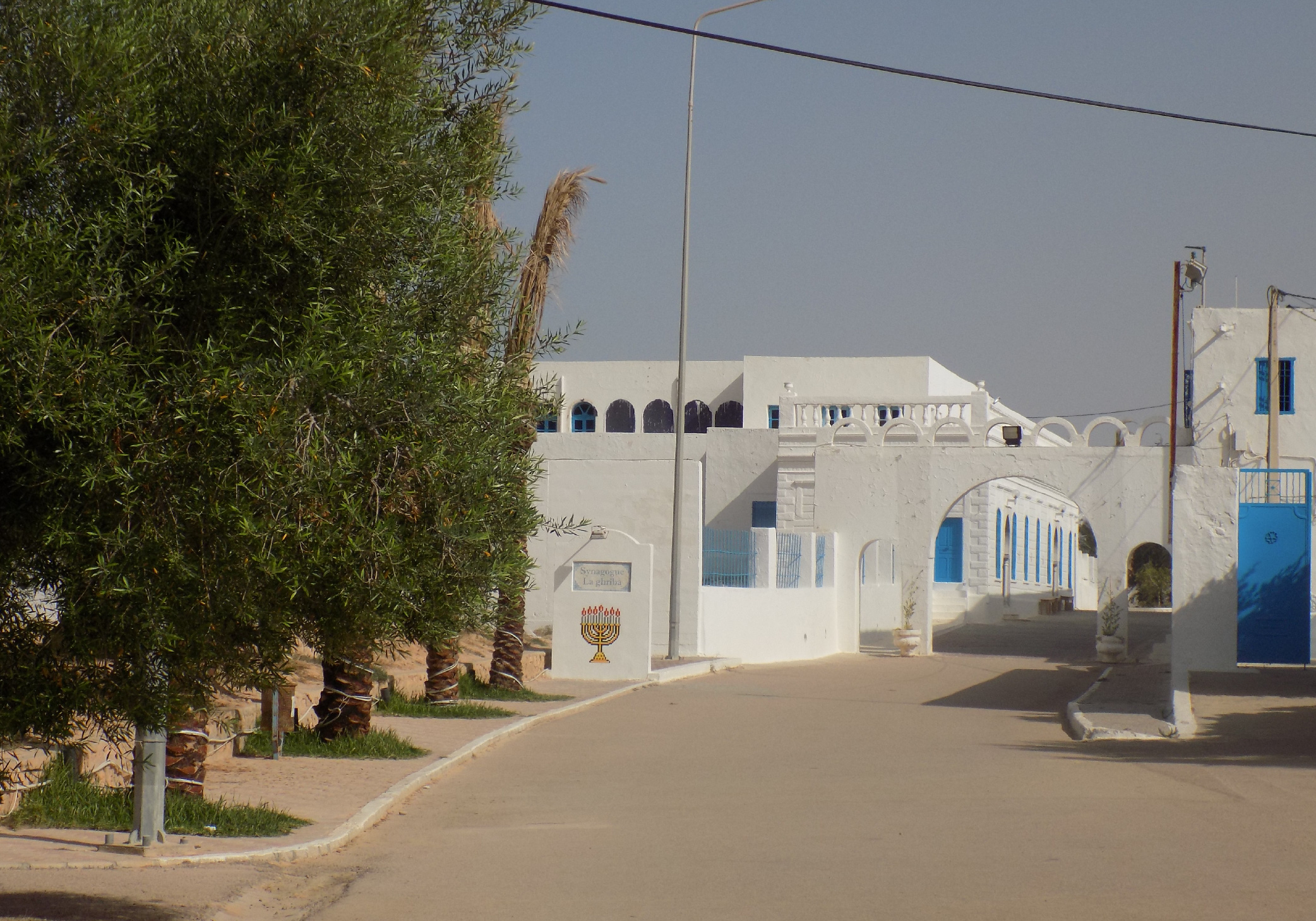 Djerba island in Tunisia, the Island of Forgiveness, the Island of Dreams
Djerba island in Tunisia, the Island of Forgiveness, the Island of Dreams
"It's like any Mediterranean island. It has encountered and known many great civilizations as a result of all the historical invasions. This has resulted in cultural, religious, and ethnic diversity, fostering an environment of openness to others," explains Nasser Bouabid, head of the Djerba Conservation Association (Association pour la Sauvegarde de l'île de Djerba), to Raseef22. Djerba boasts several archaeological sites dating back to ancient history, shaped by the influences of Phoenician, Roman, Byzantine, and Arab-Muslim rulers. Throughout its history, the island has witnessed numerous conflicts and battles, until it fell under the French mandate before gaining independence with Tunisia in 1956.
Yet, despite these struggles and conflicts, the peaceful nature of its people endures. They have continued to cultivate the land through agriculture, engaging in fishing and trade, and welcoming anyone seeking to share in their way of life. The island's inhabitants have opened their doors and embraced all those who are oppressed from all corners of the world, transforming Djerba into a refuge for minorities across the ages. It offered sanctuary to groups of Jews fleeing the Babylonians, and over time, it became a melting pot for people arriving from both the East and the West. Djerba has also warmly embraced adherents of the Ibadi sect, considered a minority within Islam, alongside the Orthodox and Catholic churches, which have since become major tourist attractions.
While this spirit of coexistence – once a characteristic of Egyptian cities like Cairo and Alexandria, which gradually diminished after the 1952 revolution – faded in some other parts of the region, it continues to thrive in Tunisia's Djerba. Nasser affirms, "It's only natural to encounter individuals of various faiths here, with homes and shops standing side by side, and places of worship coexisting harmoniously without any sensitivities."
While this strong spirit of coexistence faded in many parts of the world, it continues to thrive in Tunisia's Djerba. "It's natural to encounter individuals of various faiths here, with homes and places of worship coexisting harmoniously without any issue"
The isle of temples
Out of the myriad of names ascribed to Djerba, the "Island of Dreams" stands out as the most common when discussing it as a tourist haven. This distinction arises from its captivatingly beautiful beaches that span along its 125-kilometer coastal strip, coupled with its unique urban charm, historical heritage and legacy. Nevertheless, I find this designation to be the most accurate portrayal of its remarkable ability to foster opportunities for encounters and connections among people, irrespective of their inclinations or beliefs, on Arab soil. This is especially true for those who ardently follow the faith of Prophet Moses and adamantly refuse to part from a land they call home.
The Jewish community on Djerba resides predominantly in two areas, aptly named "Hara Sghira" (little neighborhood) and "Hara Kbira" (large neighborhood), with an approximate population of 1,200 individuals. Tunisia once housed more than a hundred thousand Jews, but emigration surged after the 1948 occupation of Palestine, escalating further after the country gained independence and adopted a socialist policy.
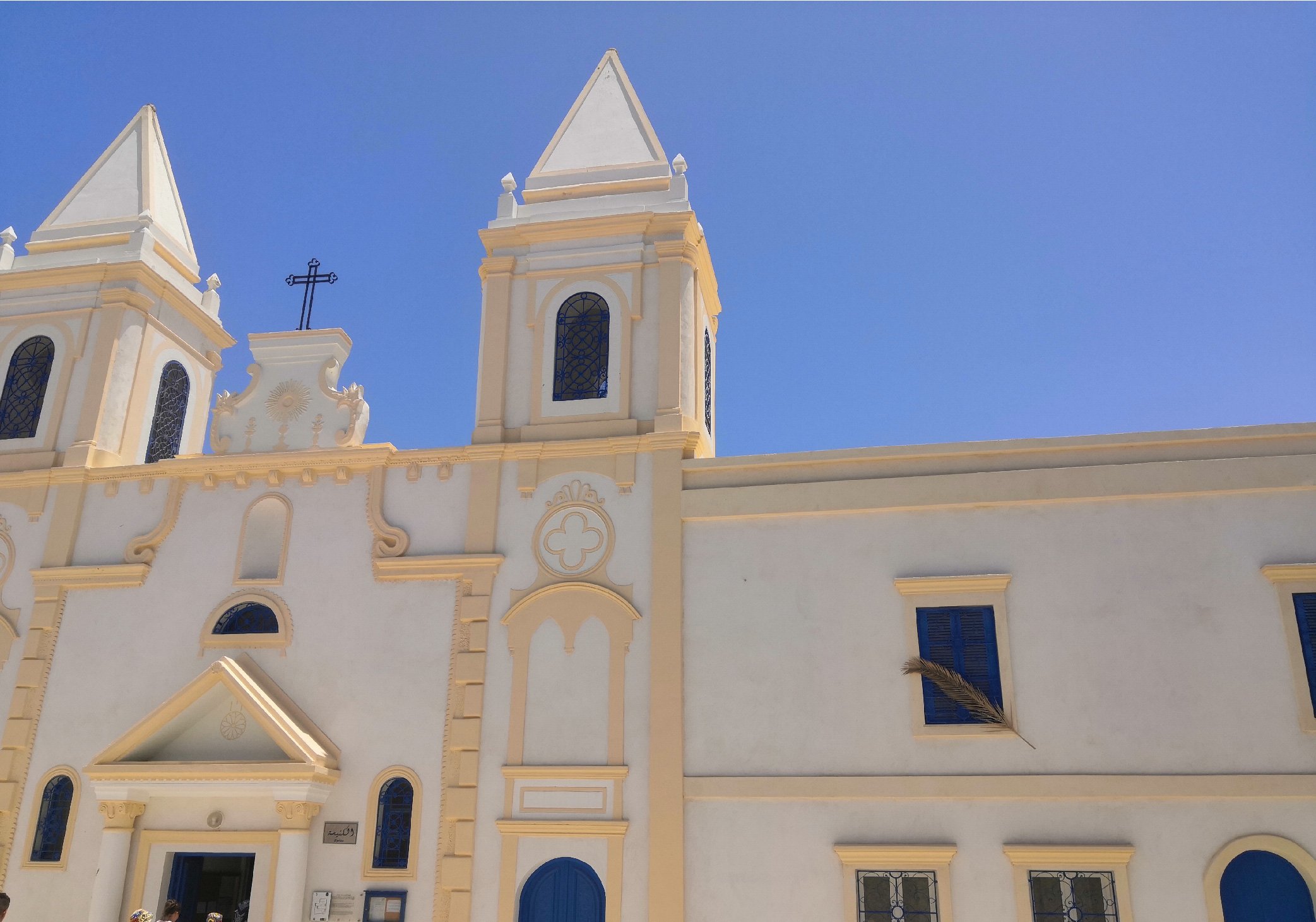 Synagogue in Djerba island in Tunisia, the Island of Forgiveness, the Island of Dreams
Synagogue in Djerba island in Tunisia, the Island of Forgiveness, the Island of Dreams
Presently, "Hara Sghira" transcends its identity as a mere neighborhood where Muslims and Jews coexist. As one wanders through its passageways, radiating light and illuminated by an array of colors, it feels like strolling through an open-air art gallery, adorned with wall murals created by artists from diverse backgrounds since 2014. This place is now synonymous with the "DjerbaHood" project, a street art museum that is seen as an extension of the intellectual and emotional riches of this land, allowing us the opportunity to get closer to its inhabitants, who take pride in in anyone of its people who became famous outside its borders, and adorn their walls with murals of them, including one commemorating the late blogger Lina Ben Mhenni, a prominent activist during the Jasmine Revolution, alongside another honoring the comedian Samia Orosemane.
"It's like any Mediterranean island. It has encountered and known many great civilizations as a result of all the historical invasions it faced. This has resulted in cultural, religious, and ethnic diversity, fostering an environment of openness to others"
Just a stone's throw away stands the Ghriba Synagogue, the oldest Jewish temple in North Africa and one of the most significant Jewish temples in the world. Its history is interwoven with a captivating tale that traces back to the Jews' exodus from Jerusalem during the Babylonian captivity period. According to the story, it is believed they left carrying stones from the ruined Temple of Solomon, placing them in the basement of this temple some 2,500 years ago. The Ghriba synagogue is one of eleven Jewish temples on Djerba and serves as a sacred destination for Jews who gather here every May to engage in pilgrimage rituals and religious ceremonies in a joyous atmosphere alongside adherents of the other two faiths, rejoicing at the start of the tourist season. While this year's pilgrimage was affected due to an armed attack perpetrated by a security officer, resulting in casualties, the people of Djerba regard it as an isolated incident and an anomaly far from the nature of the place, an aspect I genuinely grasped during my visit to "Hara Kbira".
I first came across it from a friendly taxi driver who insisted that leaving the island without savoring the Tunisian delicacy "Birbik" from the renowned "Isaac" restaurant in the "Hara Kbira" was out of the question. Upon arriving at the bustling eatery, I couldn't help but notice two veiled women eagerly waiting for their food, which was being skillfully prepared by a young man sporting a Jewish Kippah on his head. It felt like a scene straight out of a cinematic portrayal of national unity. However, the real magic unfolded outside the restaurant, where children donning Kippahs playfully raced around on their bikes, sharing laughter with their Muslim neighbors.
The Jewish community of Djerba doesn't lead a secluded life but actively engages in daily activities, albeit with a hint of reserve towards strangers. Some of them attend mixed government schools, while others opt for religious education. According to Abdo Darza, a Muslim cook at the Jewish religious school in Djerba, "Every family chooses the education they find suitable for their children, but in general, we all respect each other's customs and traditions. Relationships blossom just as they do anywhere else in the world, as long as we accept each other, for we are all descendants of Abraham."
The island of mosques
Djerba, predominantly Muslim, boasts between 250 to 300 mosques that stand as a testament to its rich history. These mosques have played multiple roles in Djerba's community over time. Beyond being places of worship, they served as defensive fortresses, keeping a watchful eye on the coasts and raising alarms through signal fires in case of potential dangers or raids.
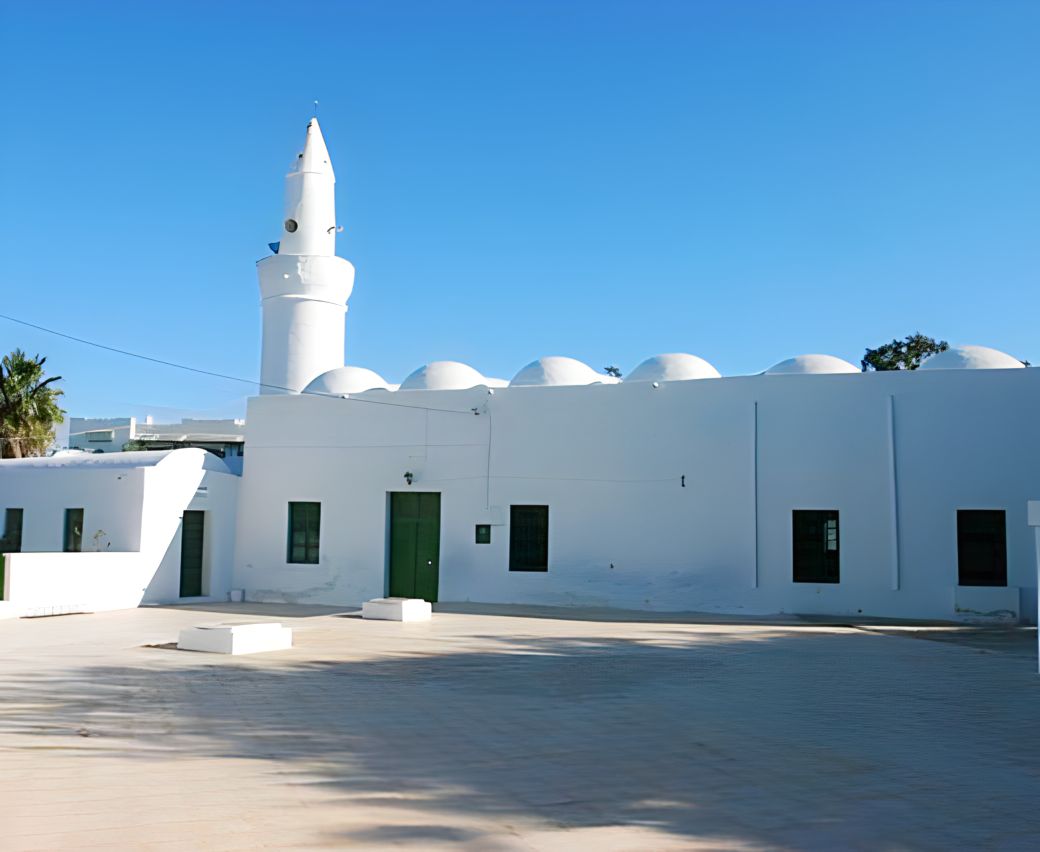 Mosque in Djerba island in Tunisia, the Island of Forgiveness, the Island of Dreams
Mosque in Djerba island in Tunisia, the Island of Forgiveness, the Island of Dreams
Amid the various titles attributed to Djerba, the "Island of Dreams" remains the most prevalent due to its breathtaking beaches that stretch along its 125-kilometer coastline, coupled with its unique urban charm and historical heritage
Strategically positioned along the coastal strip, as well as nestled within neighborhoods and forests, the mosques and their surroundings are a marvel. Notably, some of these mosques were carved beneath the earth's surface, seamlessly blending with the island's natural landscape, to offer shelter to families during times of invasions, such as the Al-Wati Mosque and the Berdaoui mosques. The mosques open their doors to all, irrespective of religious backgrounds, especially during periods of conflict.
One might assume that the harmonious coexistence among the three Abrahamic faiths, particularly between Muslims and Jews, could easily be disrupted in today's world. However, the people of Djerba embrace the concept of national belonging and participation, irrespective of religious affiliations.
Nasser Bouabid says, "In the age of grand labels, ordinary human practices like peaceful coexistence and tolerance often take on melodramatic designations. But Djerba has always been and remains a melting pot for everyone, welcoming all who celebrate diversity and differences while rejecting the views of extremists who claim to possess absolute truth."
Raseef22 is a not for profit entity. Our focus is on quality journalism. Every contribution to the NasRaseef membership goes directly towards journalism production. We stand independent, not accepting corporate sponsorships, sponsored content or political funding.
Support our mission to keep Raseef22 available to all readers by clicking here!
Interested in writing with us? Check our pitch process here!
